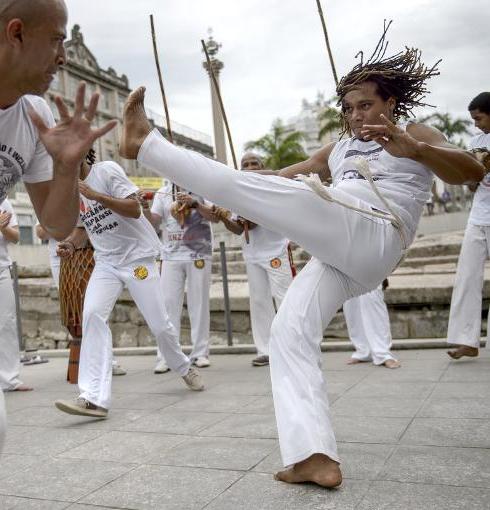Brazil’s Capoeira, Estonia’s saunas, nomadic yurts make world heritage list
Brazil’s Afro-style Capoeira fight and dance, Estonia’s medieval tradition of smoke saunas and the nomadic yurts of Kazakhstan and Kyrgyzstan were listed by UNESCO as intangible world heritage sites Thursday. Some 40 proposals were being considered this week by the Paris-based UN cultural agency as meriting a place on the list of “intangible cultural heritage”, from the Arirang folk songs of Korea to Armenia’s traditional Lavash bread. Japan’s traditional hand-made Washi paper along with Burundi’s ritual dance of the royal drum too were among 18 traditions or cultural practices added to the prestigious list aimed at protecting endangered traditions. Brazil’s Capoeira, which is a fight and also a dance, was chosen because “it also functions as an affirmation of mutual respect between communities”. Chile’s Bailes Chinos, a brotherhood of musicians who dance, sing and make music, “function as a model for social integration and cohesion”, UNESCO said.
It may be a drop in the ocean but we are moving ahead bit by bit. Countries are realising that their heritage is important to all of humanity.
Cecile Duvelle, who runs UNESCO’s intangible heritage section

Arts